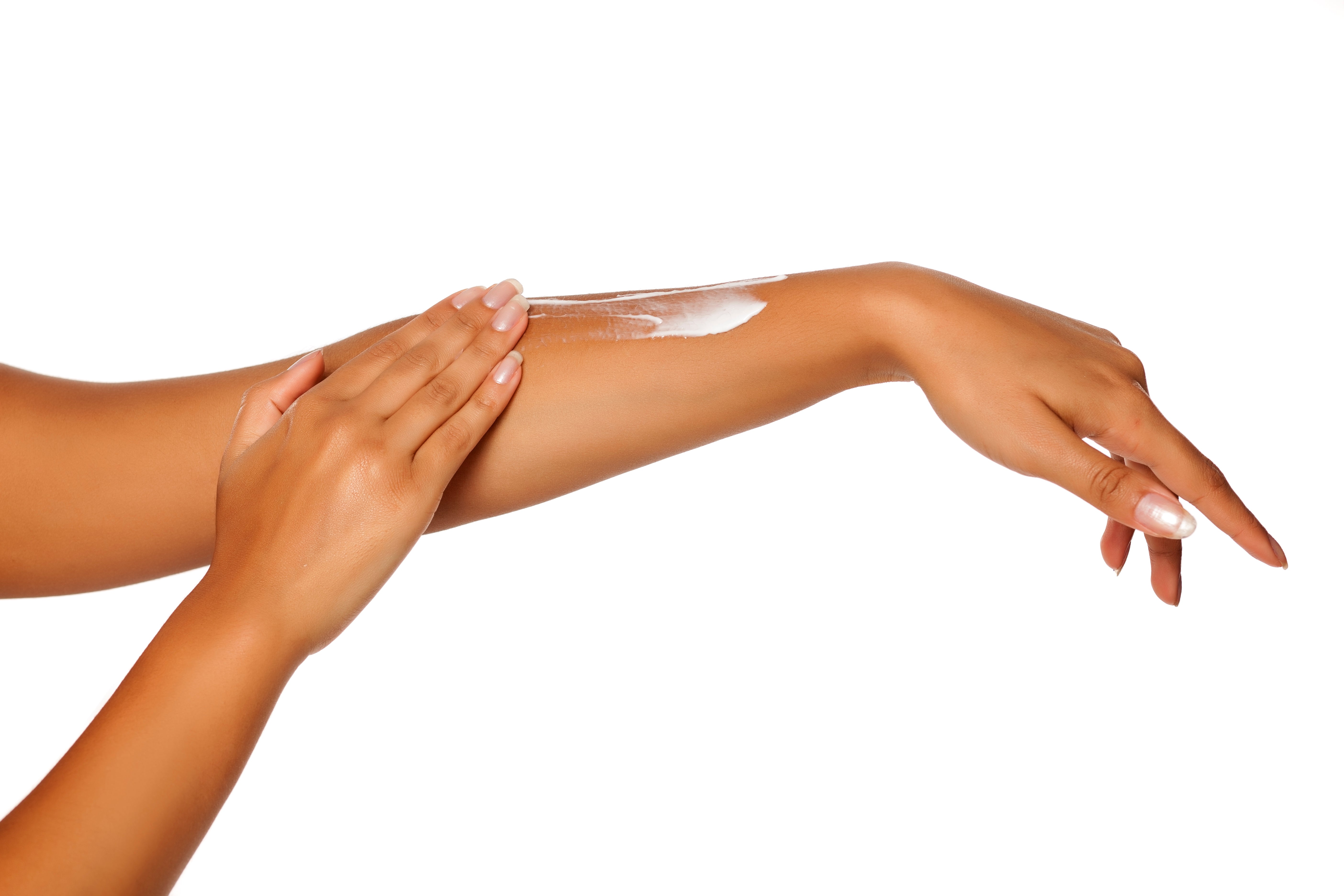Whether it's ten steps or three, you probably already have a skincare routine. Maybe you've carefully formulated it over the years, or you've only just started to find which products work best for you. Whichever it is, do we really know what we're putting on our skin, and the purpose of each step in our routines?
Welcome to The Anatomy of Skincare, where we break down each layer of a typical skincare routine, so that you can craft the perfect routine for you, thoughtfully and with intention.
The Basics of Moisturizing
In the context of skincare, a moisturizer is a topically applied product that is used to increase the skin's water content and restore the skin's barrier function [1]. Moisturizers are one of the most basic yet essential steps in a skincare routine.
What makes moisturizers different if I can find a hydrating cleanser, toner, or serum?
Although it depends on the specific ingredients, moisturizers in general are formulated to improve hydration by creating a physical barrier to lock in water within the skin, or by restoring the skin barrier function to prevent dehydration [1]. While it is true that many cleansers, toners, serums, and other products nowadays contain hydrating ingredients, a moisturizer is necessary in order to ensure that water does not evaporate from the skin.
Classes of Moisturizers
There are a few different types of ingredients commonly found in products labeled as moisturizers. We'll explain the main three.
Emollients
Emollients are mainly lipids and oils, meaning they are easily absorbed by the skin, and help skin barrier function by increasing membrane fluidity and facilitating cell signaling. That sounds complicated, but basically, emollients help to hydrate and improve the skin's softness, flexibility, and smoothness. Common emollients include fatty acids such as ones found in plant oils, and squalene, a lipid that is commonly found in human skin cells and a component in sebum. Squalene is important for hydrated skin, and although it is produced by our own bodies, the production rate slows drastically after age thirty. Have no fear, as this ingredient can actually be derived from plants as well!
Humectants
Humectants are compounds that attract and bind water, primarily from the deeper layers of your skin to the skin barrier. Some common humectants you may have heard of are Alpha-hydroxy acids (AHAs) such as glycolic and lactic acid, Hyaluronic acid, and Panthenol [2]. However, since humectants mainly take water from the inner layers of the skin to bring to the top layers, high concentrations can lead to further dryness of the skin, which is why they are commonly combined with other ingredients to trap the moisture [1, 2]. Despite this, overall, humectants are great for restoring skin barrier function and reducing dryness and irritation of the skin [2].
Occlusives
Occlusives are the ingredients that create a seal-like barrier to prevent moisture from leaving the skin. When combined with a humectant, the skin barrier is able to be restored of water from the deeper layers of the skin, but the water will not evaporate as easily. Common occlusives include petroleum jelly, mineral oils, plant-based oils such as coconut oil, castor oil, or grape seed oil, shea butter, and beeswax [1, 2].
Why is moisturizing so important?
Hydration is so much more than just preventing dry skin. When your skin does not have enough moisture, it can become irritated, or overproduce oils. Both extremes are harmful, as irritated skin can develop into more serious skin conditions, and oily skin can lead to acne. Dry skin can also make one look older, as dehydrated skin loses its soft, bouncy texture. The skin on the face, neck, and chest are more sensitive and shed cells more rapidly than other parts of the body, meaning they need moisture for the skin barrier to function properly and help new cells rise to the surface [3, 4].
Finding Your Perfect Moisturizer
As always, it is crucial to find a product that suits your skin and targets your skin concerns. We'll recommend some of our favorite products and mention exactly which skin concerns they target, so you can easily find the product that's best for you. Keep in mind that all our products are great for sensitive skin!

We recommend: LightWater AM Multivitamin Moisturizer
Why we love it: This formula is packed with high-quality, essential ingredients that work to hydrate, repair, and protect. The vitamins and antioxidants in this moisturizer stimulate cell regeneration for revitalized and youthful skin, but also protect the skin from harmful environmental factors such as pollution and free radicals. Hyaluronic Acid, Shea Butter, and Ceramide work to repair the skin barrier and lock in moisture for soft, healthy skin.
Best for: Normal, Dry, Mature Skin

We recommend: MiMC Essence Herb Balm Cream
Why we love it: This cream contains luxurious ingredients that lock in moisture, protect the skin, and prevent aging. Propolis is extracted using a new method that helps to maintain the integrity of the functional benefits of propolis, such as hydration, healing, and antioxidant protection. Ingredients such as squalene, beeswax, and various seed oils ensure that the skin is moisturized.
Best for: Dry, Mature Skin

We recommend: Fitglow Beauty Vita Rich Bakuchiol + Glutathione Super Cream
Why we love it: Have you heard about Bakuchiol? Bakuchiol is a plant-based alternative to retinol, making it more suitable for sensitive skin. Combined with Glutathione, an ingredient that works to help improve hyperpigmented or dull skin, this cream works to restore your glow while also stimulating collagen production for firmness and elasticity. It contains Hyaluronic acid in combination with various plant oils, making it deeply moisturizing, but still lightweight.
Best for: Normal, Dry, Combination, Mature Skin

We recommend: Ere Perez Moringa All-Beauty Crème
Why we love it: Moringa contains Vitamin A and amino acids, making it great at accelerating cell renewal. The vitamins and plant extracts in this formula help moisturize, protect, and nourish the skin. This formula is lightweight and melts right into your skin, providing the perfect base for makeup, or a satin glow.
Best for: Normal, Combination, Oily Skin

We recommend: iota Supercloud Body Serum+
Why we love it: Although it is labeled as a body serum, this formula is gentle enough for sensitive areas such as the face and neck. It's jam-packed with high-quality, natural ingredients that target a multitude of skin concerns: hydration, barrier repair, anti-aging, protection from free radicals, and healing through anti-inflammatory benefits. You won't regret trying out this bestselling serum!
Best for: All skin types!
To summarize, moisturizer is a non-negotiable when it comes to skincare. Locking in moisture keeps your skin looking, and feeling, refreshed and healthy. Your skin will thank you. As always, make sure to take a look at the ingredients in order to find the moisturizer that best suits your skin's needs!
Still have questions or want to learn more? Feel free to reach out to us — we're always here to help!
Sources
1. Harwood, A., Nassereddin, A., Krishnamurthy, K. (2024). Moisturizers. StatPearls [Internet]. https://www.ncbi.nlm.nih.gov/books/NBK545171/
2. Sethi, A., Kaur, T., Malhotra, S. K., & Gambhir, M. L. (2016). Moisturizers: The Slippery Road. Indian journal of dermatology, 61(3), 279–287. https://doi.org/10.4103/0019-5154.182427
3. University of Tennessee Medical Center. (2022). The Importance of Moisturizing. https://www.utmedicalcenter.org/blog-post/importance-moisturizing
4. Kang, S.-Y., Um, J.-Y., Chung, B.-Y., Lee, S.-Y., Park, J.-S., Kim, J.-C., Park, C.-W., & Kim, H.-O. (2022). Moisturizer in Patients with Inflammatory Skin Diseases. Medicina, 58(7), 888. https://doi.org/10.3390/medicina58070888





